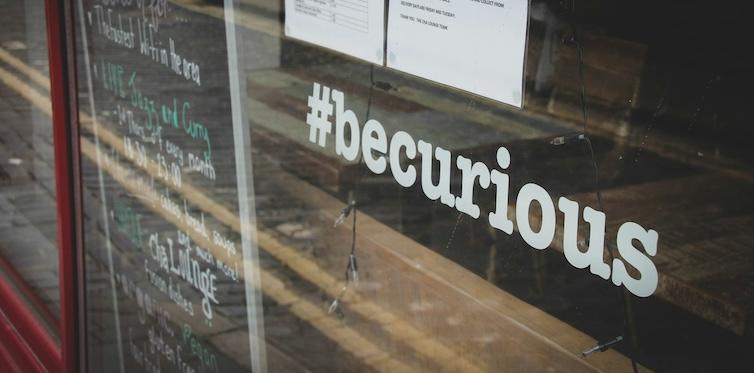In this monthly column, we check in with one of our resident agents to answer those questions you’re too afraid to ask for yourself. This month, Laura Bennett of the Liverpool Literary Agency tackles questions asked by BFS members in our dedicated Discord channel.

Name: Laura Bennett
Agency: Liverpool Literary Agency
Specialism: Sci-Fi & Fantasy
Location: North West England
Follow: Threads: Losbennett / Twitter: Losbennett
Read more about Laura in her BFS member profile, here.
Q: I’m going to kick off this month. Is there currently a market for Horror/Romance cross-genre manuscripts? “Horromance”! A friend has a rather promising standalone plot outline in that area, and was wondering if it was something worth rushing, if there’s currently any inklings of an upcoming demand…? Note that it’s horror, not sparkly vampires.?
I’ve had editors ask for it a LOT. It seems to be ready to be the Next Big Thing following romantasy. I feel like because there is such a big readership for romance, they’re trying to tap into that and get those readers to cross over into new genres. Personally, I’m waiting for Sci-Fi Romance. Scimance? Si-fimance?Â
Q: What’s your process for subbing a book to publishers?
Once we’ve edited a manuscript and both the author and I are happy with it, I get to work on a pitch letter. This contains a one-line pitch, a couple of paragraphs about the book and themes, a blurb, and an author bio. I then send that to the author so they can make sure they’re happy with it, and make any changes. I also make a list of editors/imprints that I’m going to sent it to, and again this goes to the author to check they’re happy, and see if they want to add anyone. Once they’ve given me the green light, I then send a whole load of emails. Each one has the pitch letter, the manuscript and the synopsis! I have a spreadsheet for each book where I record the editor, imprint, date sent and any comments that then come in.
Q: How to have the best of two worlds and achieve what traditional publishing offers through self-publishing? How to find an agent whom will help manage a self-published novel?
I’m not sure you can, unless a publisher picks up your book (as happens with the bigger ones). The real thing is that it’s nearly impossible to get into bookshops as a self-published author, and that is something that I think most writers want. There are instances of agents representing subsidiary rights for a self-published book, or only selling some of the rights. For example, you could keep the paperback rights and only sell hardback. Or you could keep English language and only sell translations. But really, you need to be very successful as a self-published author for it to be an attractive prospect for an agent.Â
Q: Approximately what percentage of agented manuscripts are successful at the submission stage?
I’m afraid I have no idea of the actual number, but going off my track record so far and the other agents I know, I’d be surprised if it’s over a quarter. Maybe even lower. A LOT of books die on submission and end up shelved. I think I worked out that I had sold eight books out of about twenty-five, and that was a good result (some of them were two-book contracts). It’s more common than people realise for books to just not sell. I always encourage people to be thinking of the next, and get working on it once you’re on sub!
Q: Which of the current trends and themes in the market do you think are on the way out? Which do you think are about to come back in? Is there a dark horse theme that you think’s about to arrive that no one has anticipated? Something outside the normal cycles.
I think everywhere is more or less saturated with romantasy and cosy fantasy. I would really like to see it get more diverse now, and make space for new types. Horror-romance seems to be the next emerging theme. I’m hoping dystopian also has a comeback, with the new Hunger Games on the horizon! Something that I’m really keeping an eye on is LitRPG – if Dungeon Crawler Carl starts getting a following and a potential adaptation, it could really take off. At the moment, though, it’s not making that crossover to mainstream. (And the authors who are doing well don’t need trad pub to do it!)
Q: We’ve all heard stories of agents turning down a manuscript with a reason along the lines of ‘I love this and wish I could represent it, but I just don’t think I can sell it to a publisher’ – but is that actually something that happens much? If so, how do you decide when to regretfully decline and when to take the risk?
I think it happens a lot. We have to be salespeople when it comes to a manuscript, and we have to know what is likely to sell and what isn’t, because we make our money on commission a lot of the time and can’t spend the time on something that ultimately we don’t think will make us any money. From a less mercenary perspective, I think some agents will just recognise that they aren’t the best champion for something and would be doing it a disservice. It could just be that they know something needs editing, but aren’t clear on how. Or maybe there is something like word count, or genre, or characters that they just don’t feel will work. There are already so many barriers to publishing, we have to try and give something the best chance it can have. And it might be that the agent just doesn’t have the right contacts in a particular area, or they don’t know the genre well enough to effectively pitch it.
Q: New to this, so not sure if it has been answered. What would make an agent suggest to one of their existing clients that they might not be the right fit anymore?
There are a few reasons! Perhaps the client wishes to write a genre that the agent doesn’t represent. Or the next book is just something that the agent doesn’t think they can sell, or it’s not something they want to take to publishers. It could be a personality clash. Or a change in life circumstances. The agent might be shifting to a different genre themselves. And unfortunately, there are agents out there who will try one book for a client and then if it doesn’t sell, they drop them. Authors changing agents happens a LOT and it’s quite common. At the end of the day, no matter how much time and emotion you have invested into it, it’s a business arrangement and if it’s not working, then it has to change.
Q: When you get rejections, should you reply to thank agents again for their time and consideration? I would like to, but haven’t with the two I got so far as I don’t wish to add to their email load…
I never mind it! It’s nice to get a nice response, and I’m more likely to remember them for any future interactions. Just please, please – never email back to argue about it!
Q: How much do agents judge based on how well-worded the query letter is? (I have a tendency to become extremely stilted in formal/stressful environments and/or with people I do not know very well, so my likelihood of having natural-sounding writing in a query letter is very slim, even with help)
Quite a lot, unfortunately. When working through a lot of queries, there isn’t always loads of time. But stilted isn’t always bad – it doesn’t need to sound natural or voicey. You can just give the information and pitch, and a bit about yourself. A good blurb is important, but you can work on that! You just need to get a foot in the door and then your writing can speak for itself.

